Conference Coverage
Latest News
Shorts

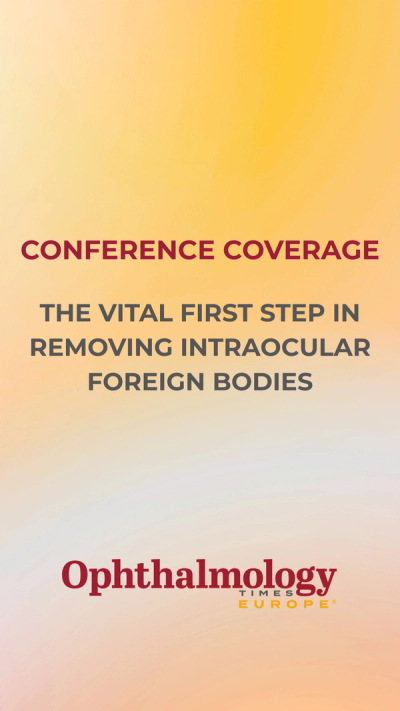
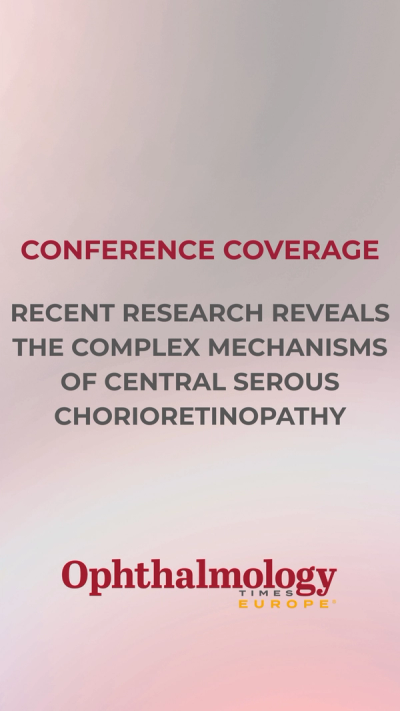


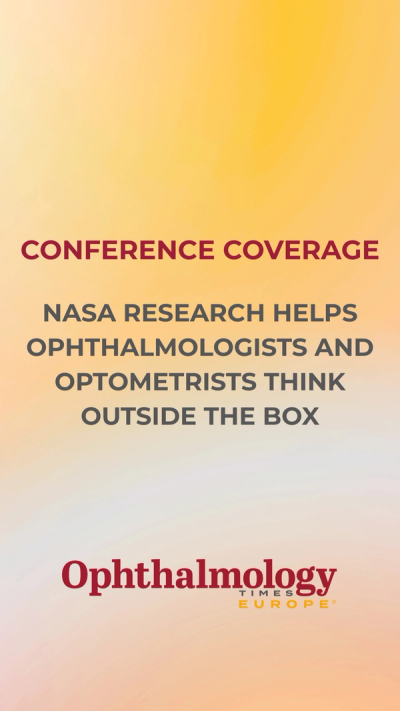
Videos
Ophthalmology Times Europe Digital Edition

Continuing Medical Education
All News

Prof. Dr. Luís Abegão Pinto outlines how real-world datasets can improve artificial intelligence accuracy, reduce bias, and support clinical decision-making at scale.

Prof. Dr. med. Wolf A. Lagrèze highlights the clinical role, limitations, and future potential of optical coherence tomography in glaucoma and neuro-ophthalmic disease.

A study reveals varying shear-thinning behaviors in artificial tears, highlighting the importance of mimicking natural tear properties for effective eye lubrication.

Ahead of the 2nd International Glaucoma Symposium in Mainz, Germany, Stephan Schulz of Heidelberg Engineering outlines how the program blends everyday clinical challenges with advances in AI, imaging, and surgery.

Sakigake designation is Japan’s “premier fast-track regulatory program for innovative therapies addressing serious unmet medical needs, designed to accelerate patient access to breakthrough treatments.

US and international glaucoma specialists will converge in Mainz, Germany, on 31 January 2026, to map the next era of glaucoma care—covering AI diagnostics, optic neuropathy evaluation, and modern surgical approaches.

At the 2nd International Glaucoma Symposium on 31 January 2026, leading clinicians and researchers will share cutting-edge insights on modern surgical techniques, optic neuropathy assessment, and artificial intelligence-driven diagnostics.

Over 1.6 million individuals in the UK are estimated to have glaucoma by 2060.

“Remarkable” results were reportedly obtained with hypotony with hydroxypropyl methylcellulose.
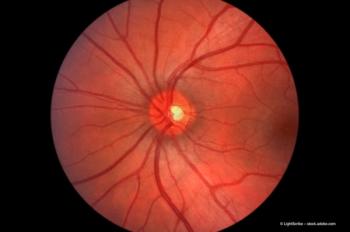
A recent study reveals that retinal microvascular changes in thyroid eye disease reflect disease activity, offering potential for improved diagnostics and treatment strategies.

Researchers uncover a DNA repair mechanism in Greenland sharks that preserves their vision for centuries, offering insights into longevity and eye health.

The company did not receive the necessary stockholder votes to approve the merger agreement with Alcon at the Special Meeting of Stockholders held on January 6, 2026.

A recent study reveals significant ocular complications from monkeypox, highlighting the need for enhanced eye health strategies in affected regions.

Positive findings in a gene therapy trial for patients with Leber Congenital Amaurosis Type 5.

The letter noted the FDA is unable to approve the application for ONS-5010/LYTENAVA (bevacizumab-vikg) in its current form for the treatment of wet AMD, according to the company.

A shift toward minimally invasive, evidence-based interventions is redefining standards of care.

Navigating the labyrinth of IRD research to identify objective, clinically meaningful outcomes.

Real-world insights guide the way to tailored treatment.

The pandemic reshapes treatment intervals for neovascular AMD, revealing flexible strategies that maintain visual outcomes and enhance patient care.

Isocyclosporin is a dual inhibitor of transient receptor potential cation channel, mucolipin subfamily, member 2 (TRPML2), and calcineurin.

AI revolutionizes retinal care, enhancing diagnosis, monitoring, and treatment through innovative technologies and collaborative efforts in ophthalmology.

Dr. Curcio highlights volume electron microscopy evidence from a preterm-born adult retina reveals unexpected Müller glial diversity and implications for foveal development.

Dr. Quan Dong Nguyen presents interim data from the phase 3 DRAGON study on a potential first therapy for adolescent Stargardt disease.

Explore the challenges and insights in long-term follow-up of paediatric gene therapy, focusing on data integrity, patient retention, and ethical considerations.


The EU-ROP registry revolutionizes retinopathy of prematurity management, offering insights into treatment variations and outcomes across Europe.


Dr. Hartnett highlights new approaches to ROP care and the changing ethical, clinical, and technological landscape in a guest lecture.

Dr. Sharon Fekrat presented a retrospective analysis assessing how antiplatelet and anticoagulant therapy relates to hemorrhage characteristics and outcomes.

Remote monitoring of age-related macular degeneration enhances patient care, reduces treatment burden, and leverages AI for personalized management.
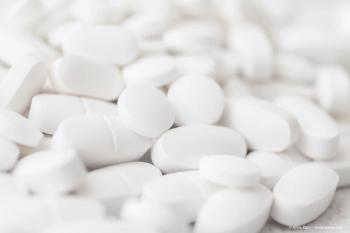
Sharon Fekrat discusses the complexities of antithrombotic use in wet AMD, highlighting the need for individualized treatment and future guideline development.

Innovative multimodal deep learning models enhance non-invasive chronic kidney disease screening by integrating retinal images and urine dipstick data for improved accuracy.
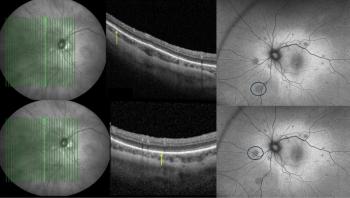
Priyanka Sanghi, BSc, MSc, MBBS, highlights how fundus autofluorescence and optical coherence tomography may help uncover long-term retinal footprints invisible to standard examination.

















































